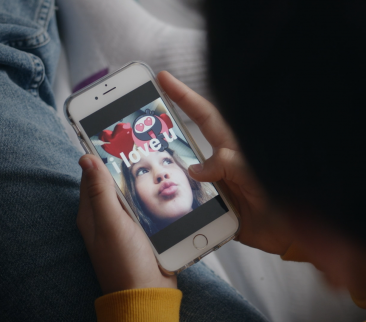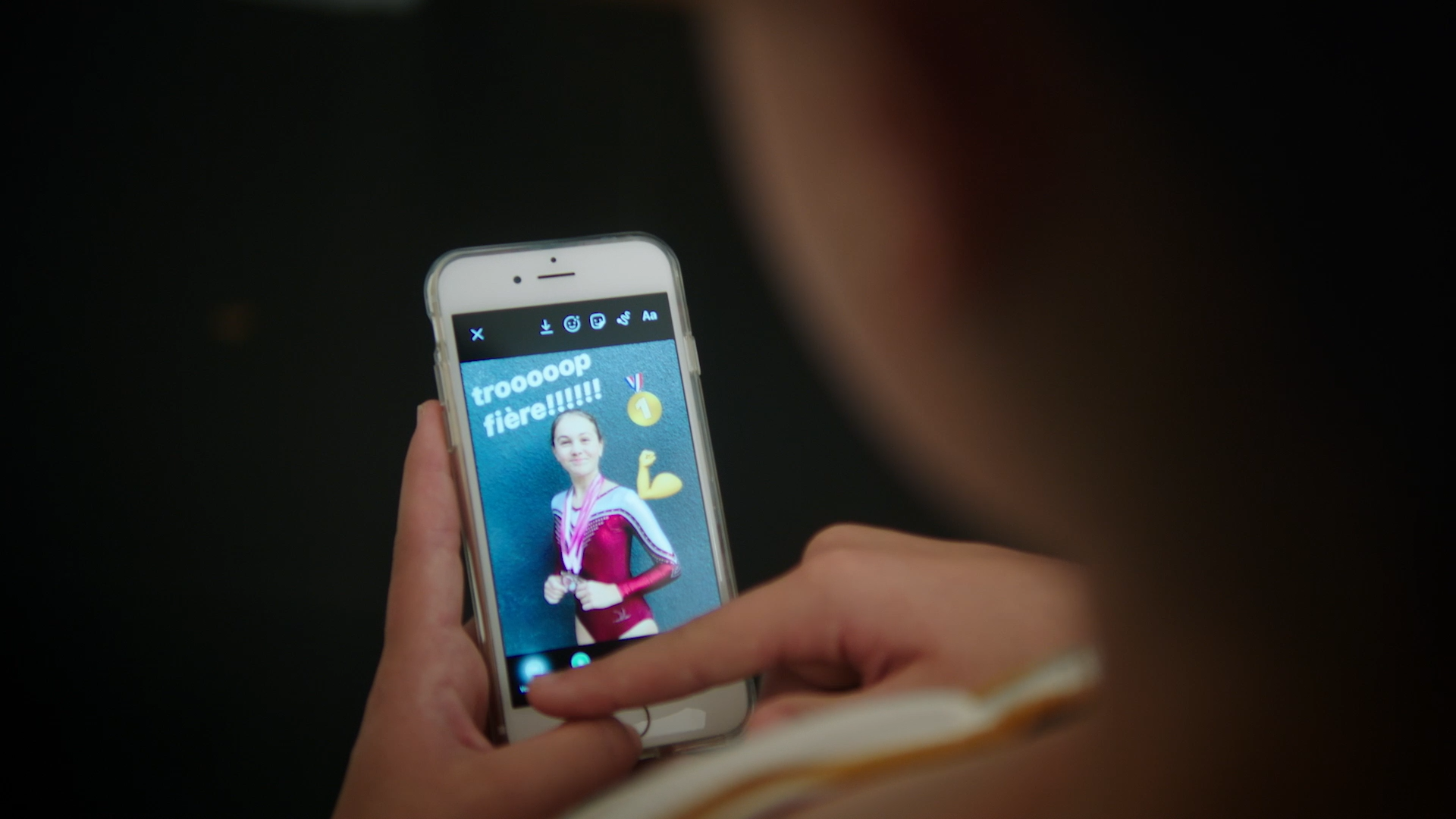This video and these parent-teen discussion guides are designed to help you talk with your adolescent about their technology habits and about preventing online sexual violence.



This video and these parent-teen discussion guides are designed to help you talk with your adolescent about their technology habits and about preventing online sexual violence.



Liliane is looking at photos on her cellphone to pick which one to post on social media. Looking at each photo brings up negative thoughts about herself. She decides to change her appearance (clothes and makeup) to take a new photo, but she’s not happy with the result. Finally, she chooses to proudly post a pic of herself in which she has a medal.




– She thinks she’s smiling too much (first photo).
– She’s afraid peole will say she’s bragging (photo
with medal).
– She’s afraid people will judge her (kiss photo).
– She doesn’t think she looks pretty (family photo).
– She thinks she won’t get many likes (family photo).

About her appearance.

About what others might think of her.
– To feel liked, admired and accepted.
– To feel like we belong to a group.
– Because it boosts our morale.
– Because it makes us feel self-confident.

– There are links between the two things because we absorb people’s comments, as well as the messages that surround us (TV, social media, advertising, etc.). They all influence us.
– A good example of this is fashion. We often want to be fashionable, to be like others. And if we don’t follow the trends, sometimes this leads us to think we’re less cool or less good-looking or that we don’t measure up.
Try to find the positive elements in what your teenager says, and talk about them more together.
– They can have an impact on body image.
-They can have an impact on self-esteem.
– They can have an impact on self-confidence.
-Ultimately, they can have an impact on our relationships with others.
– She thinks she smiles too much.
I really look like I’m in a good mood, my joy is
contagious, etc.
– She’s afraid people will think she’s bragging.
I won a medal and I’m proud of it. I’m good at gymnastics. My friends and family will be proud of me, etc.
– She’s afraid people will judge her.
I’m creative with filters. I’m not afraid of being made fun of. This is an original photo, etc.
– She doesn’t think she’s pretty.
I’m surrounded by people who love me. I look happy. It was a fun moment, etc.
As a parent, you’re a major player in your teenager’s education, particularly when it comes to sexuality. You act as a model by conveying your values and sharing everyday life with them. By talking about these topics with your teen, you’re building a trusting relationship and a climate of openness when it comes to sexuality, which helps protect them from sexual violence.


Taking the time to talk with your teenager about subjects that concern them is an effective way to position yourself as a trusted adult they can turn to in case of distress or other need.
Do you have questions, an emergency situation, or just need to talk?
La Ligne Parent is a 24/7 professional help line that’s free for parents: 1 800 361-5085 (in French).
When risks related to technology use are brought up, many teenagers believe that this phenomenon does not apply to them. This article details how you can help improve your teen’s safety skills, specifically by bringing them to recognize manipulation tactics
Getting teens to stop playing in their online world is a source of conflict within many families. Here's a few tips to avoid conflicts.
Video games are popular among young people. Not only do they spend hours playing, many teens watch videos of their favourite players on platforms such as Twitch or YouTube.